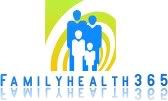 |
Fatal medication errors spike at teaching hospitals in July. Not coincidentally, July is also the month that new, inexperienced doctors start their residences at teaching hospitals, according to a recent study published in the Journal of Internal Medicine.
The so-called “July effect” showed the influx of more than 21,000 newly minted doctors corresponded to a July death rate due to medication errors that was 10 percent higher than the expected level, according to the study.
Still, the researchers at the University of California at San Diego tried hard to let the residents off the hook. Perhaps, they speculated, the effect was due to behavioral changes that occur in the summer, such as a rise in summer alcohol consumption combined with harmful medication reactions or the increase in summer tourism (tourists may receive worse health care.)
But if the change were related to summer behavior, the data would have showed a spike in August as well as July; it didn’t.
The researchers also looked at whether the July effect is a result of the July 4th holiday. But while the holiday is celebrated nationwide, the increased rate in medication errors is only seen in teaching hospital counties. Moreover, medication errors do not spike in other months containing national holidays.
Ultimately, the arrival of the new medical residents was found to be at least partially responsible for increased fatal medication errors. The residents may make more mistakes because they work long hours, are sleep deprived and still learning the system, the researcher said and they should be given increased supervision.
The good news is that the research suggests new residents appear to learn quickly. Within a month, they’re up to speed.
chicagotribune.com








0 comments
Post a Comment
[▼/▲] More Emoticons